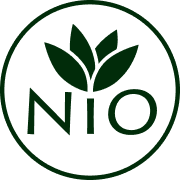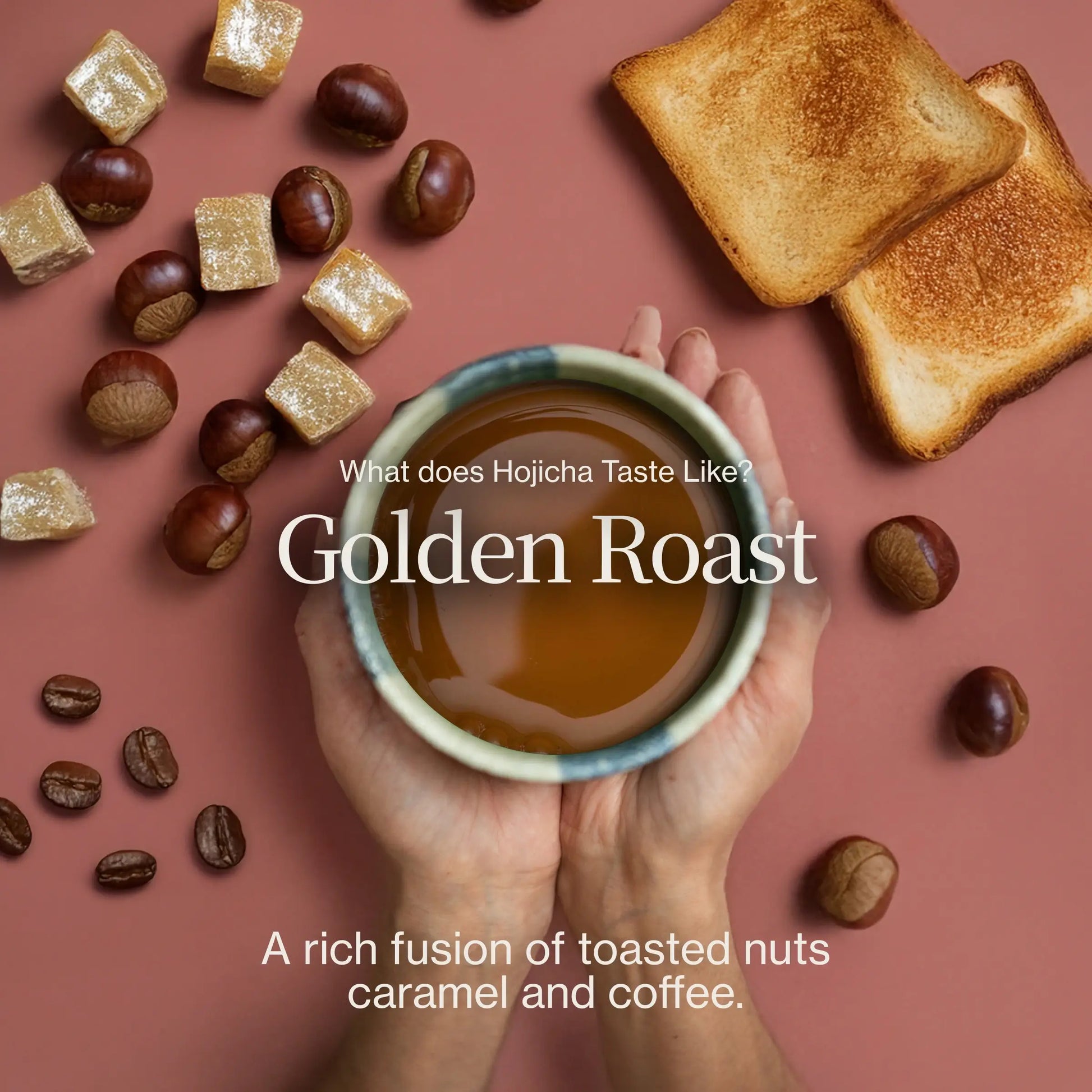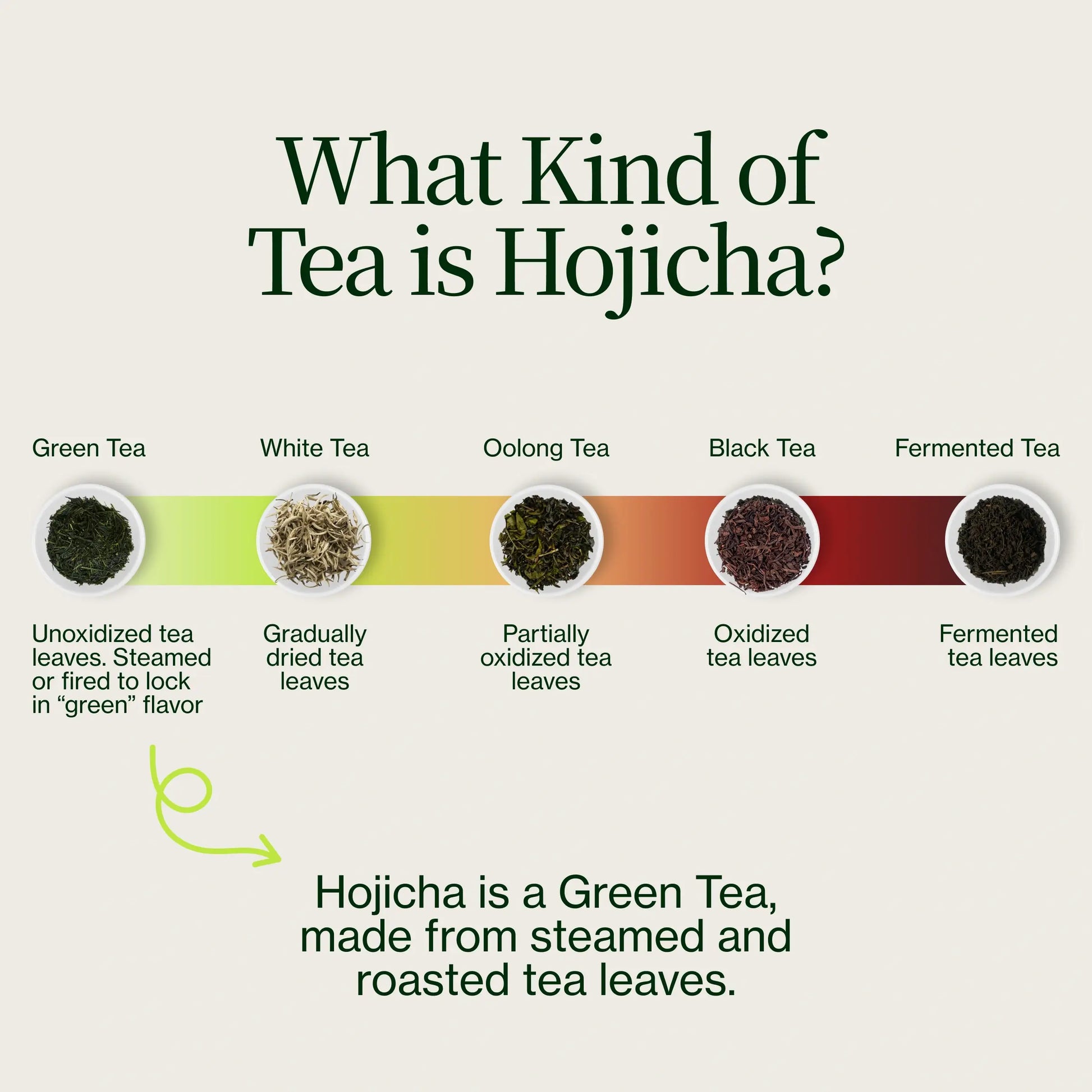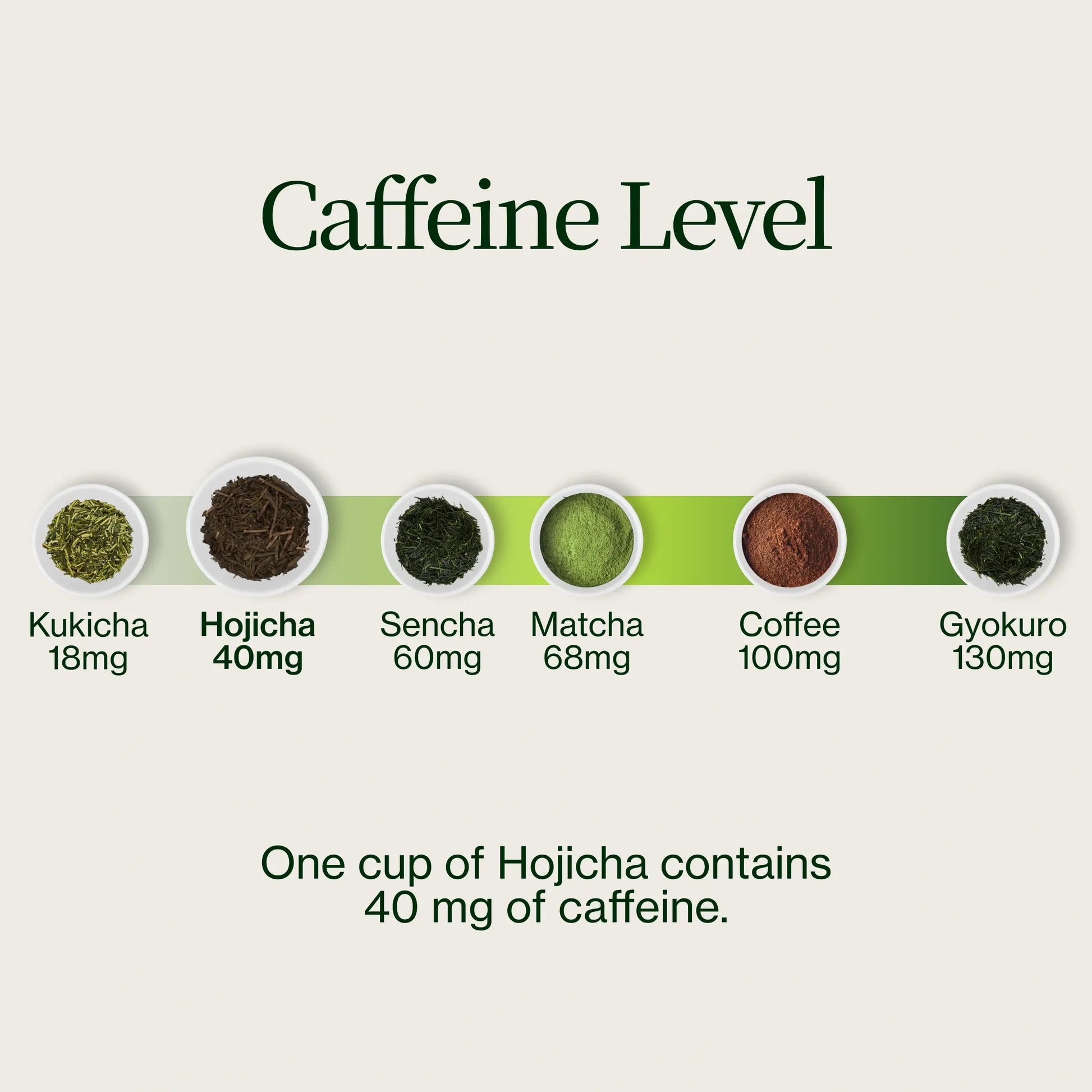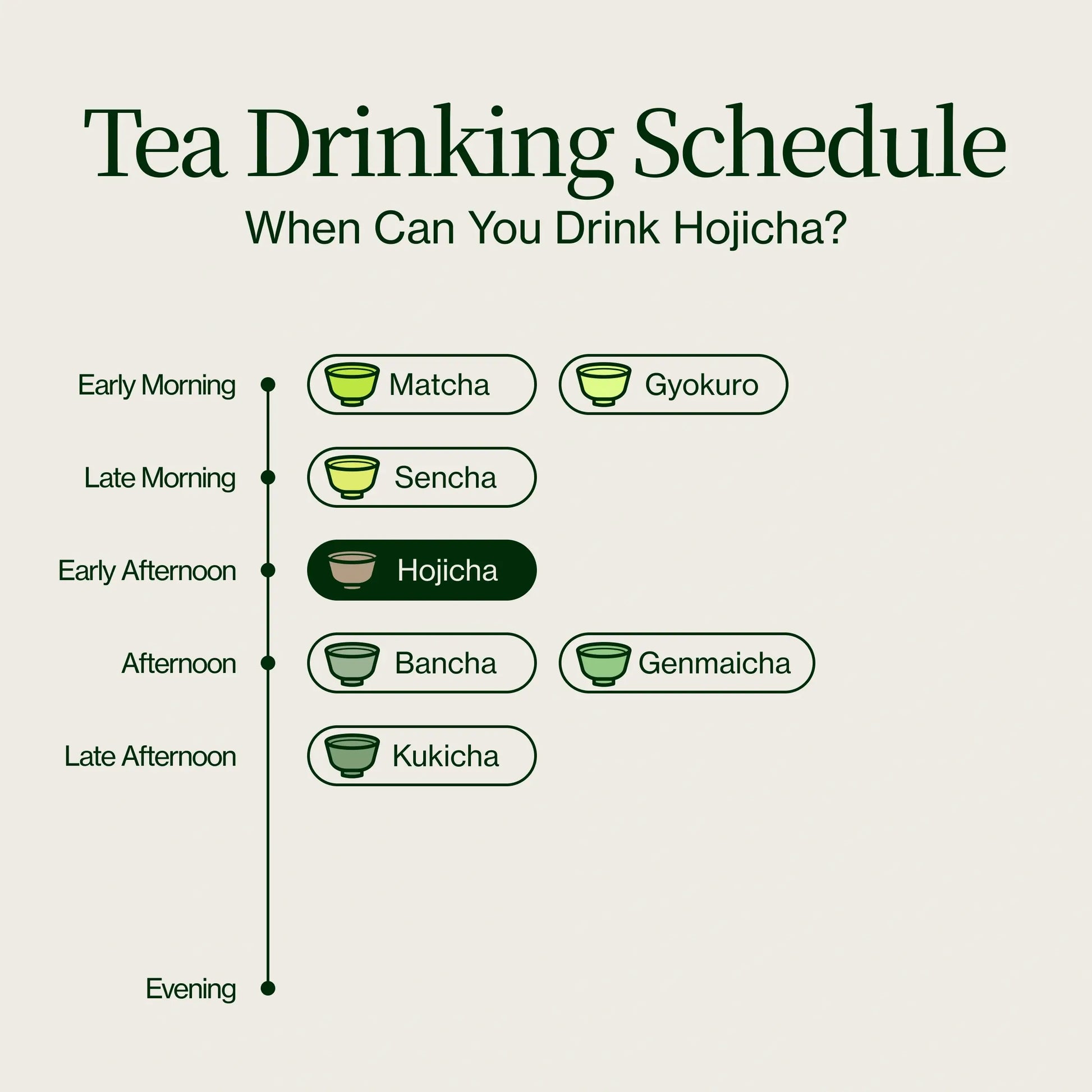Hojicha Powder
Hojicha Powder
🚚 Free shipping above $55
🍃 Pesticide free
🇯🇵 Directly sourced from Japan
🔐 Secure payment
😍 Great customer service
Text block
Couldn't load pickup availability


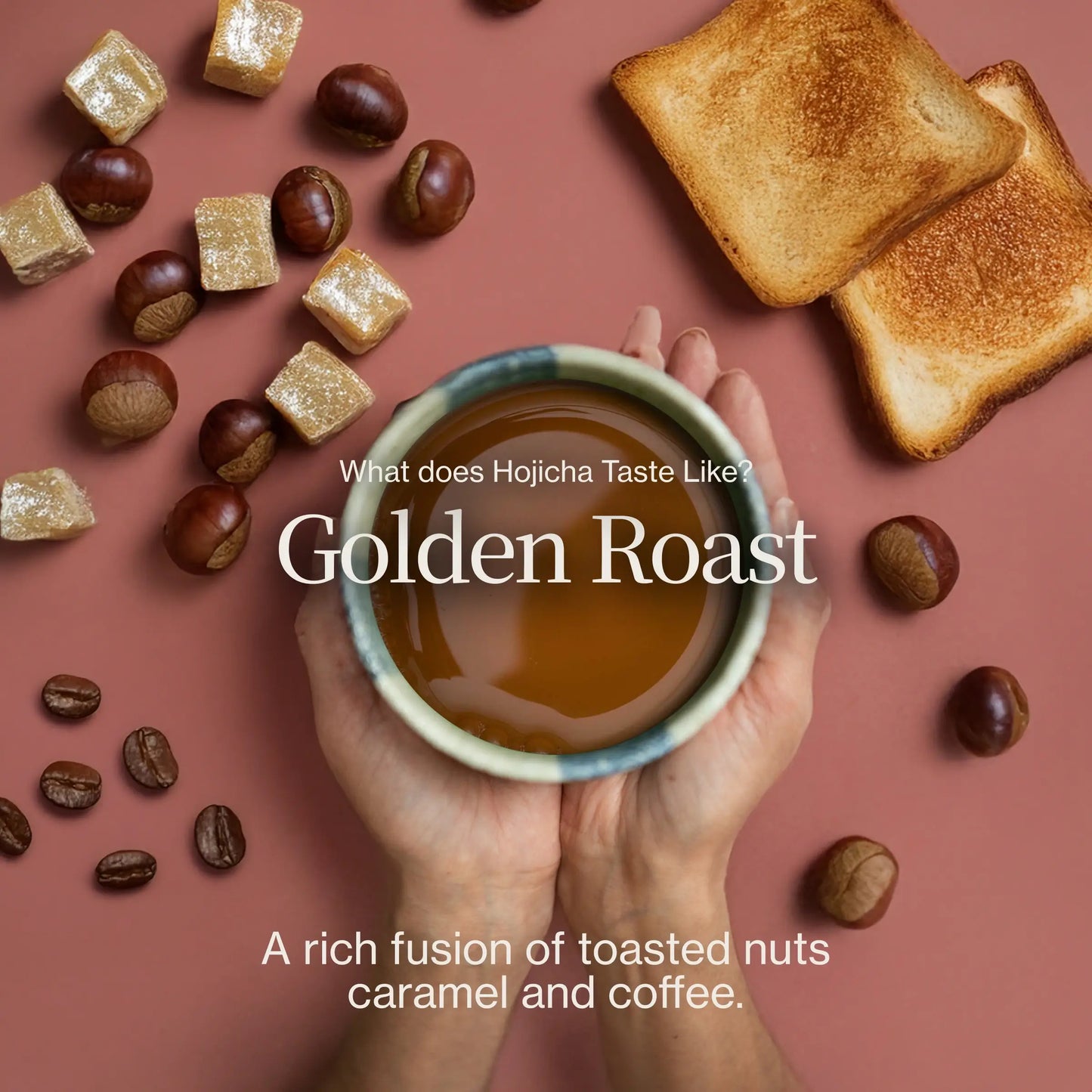

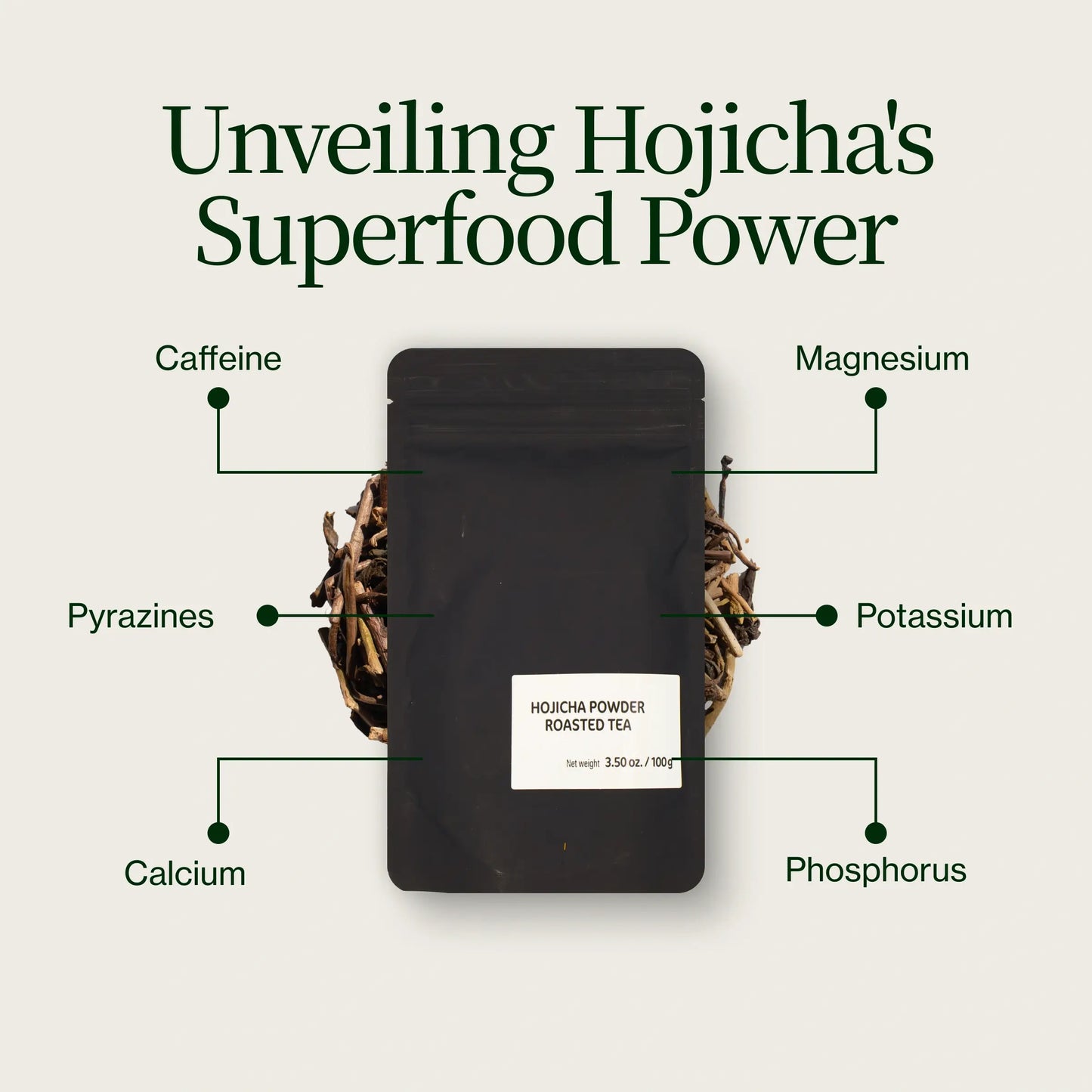
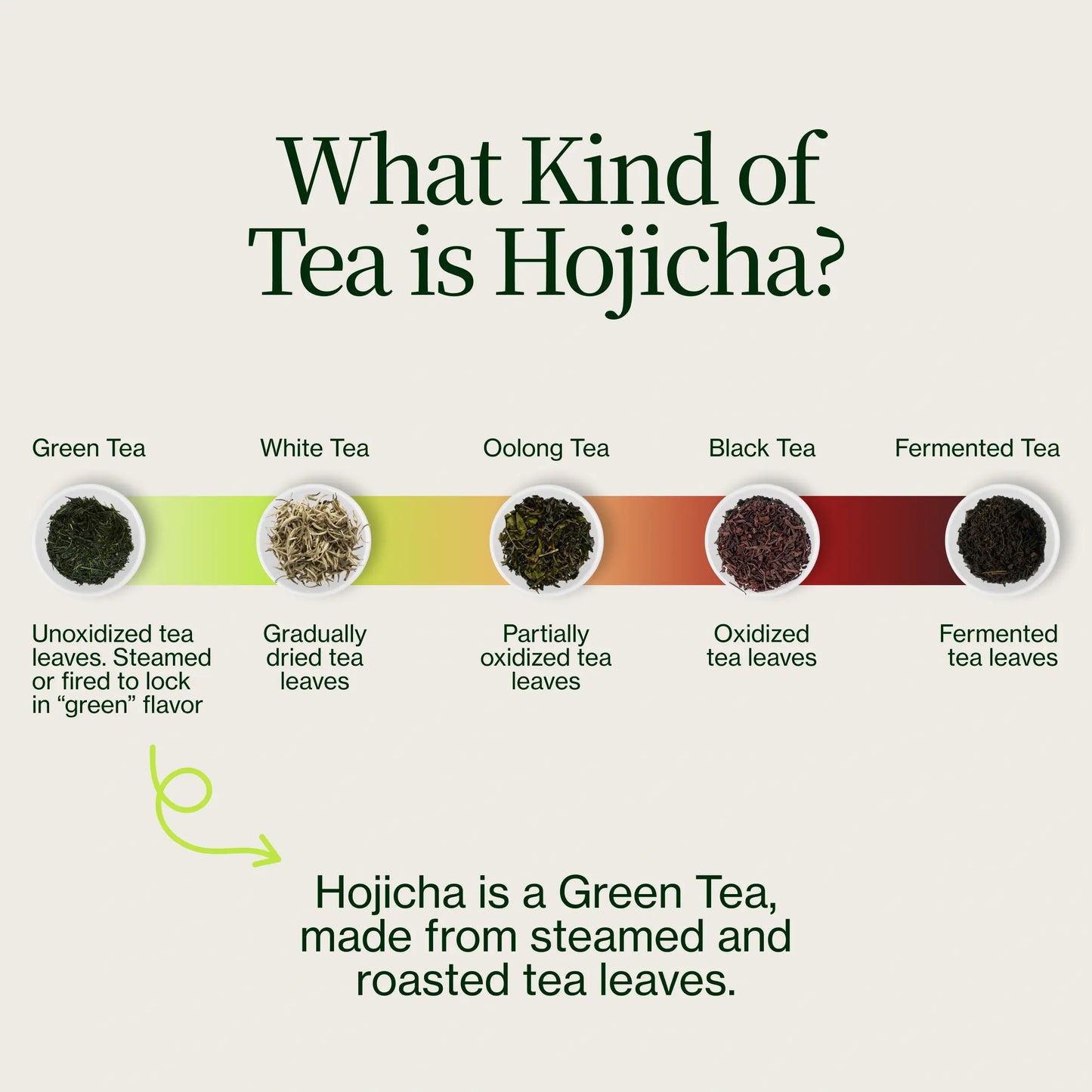
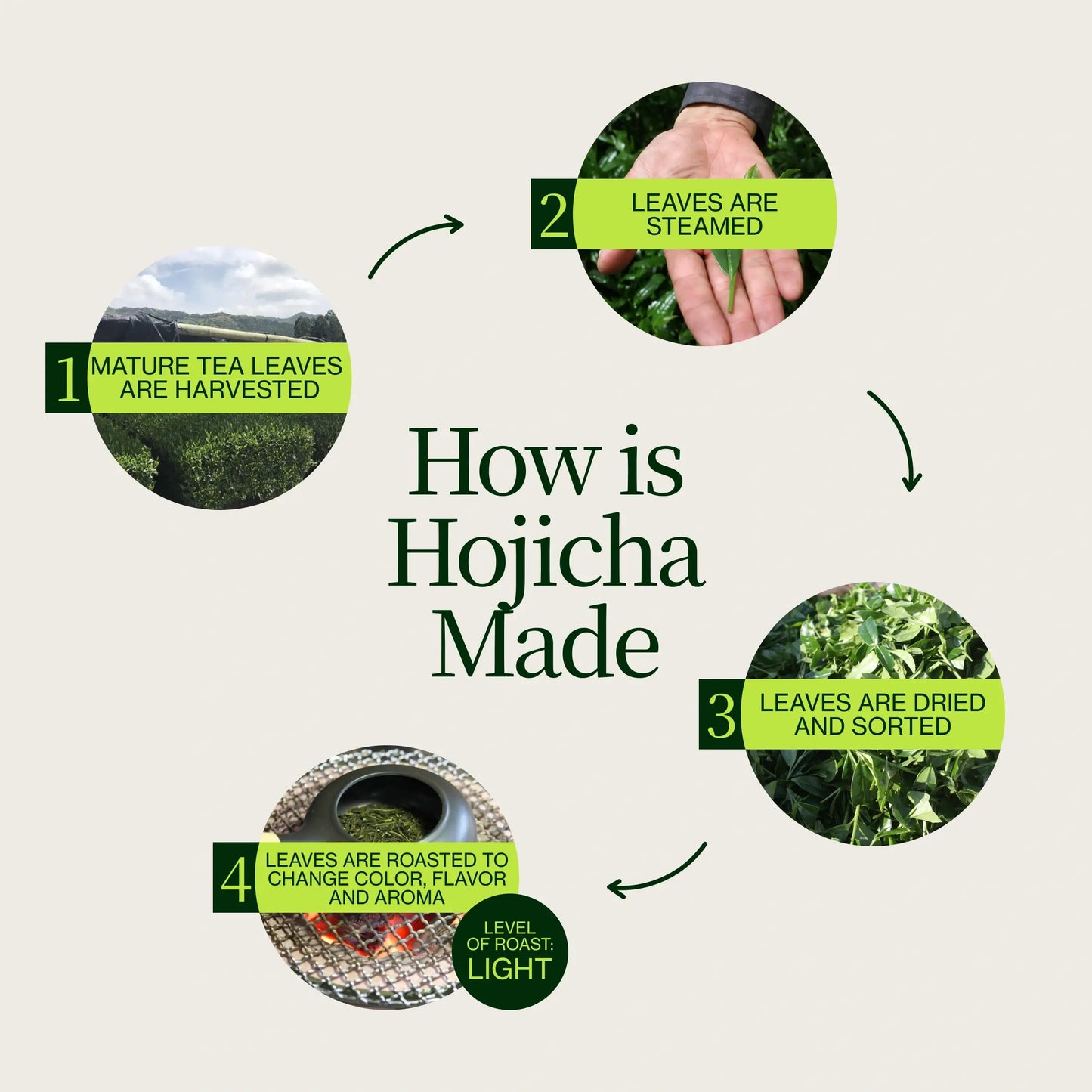
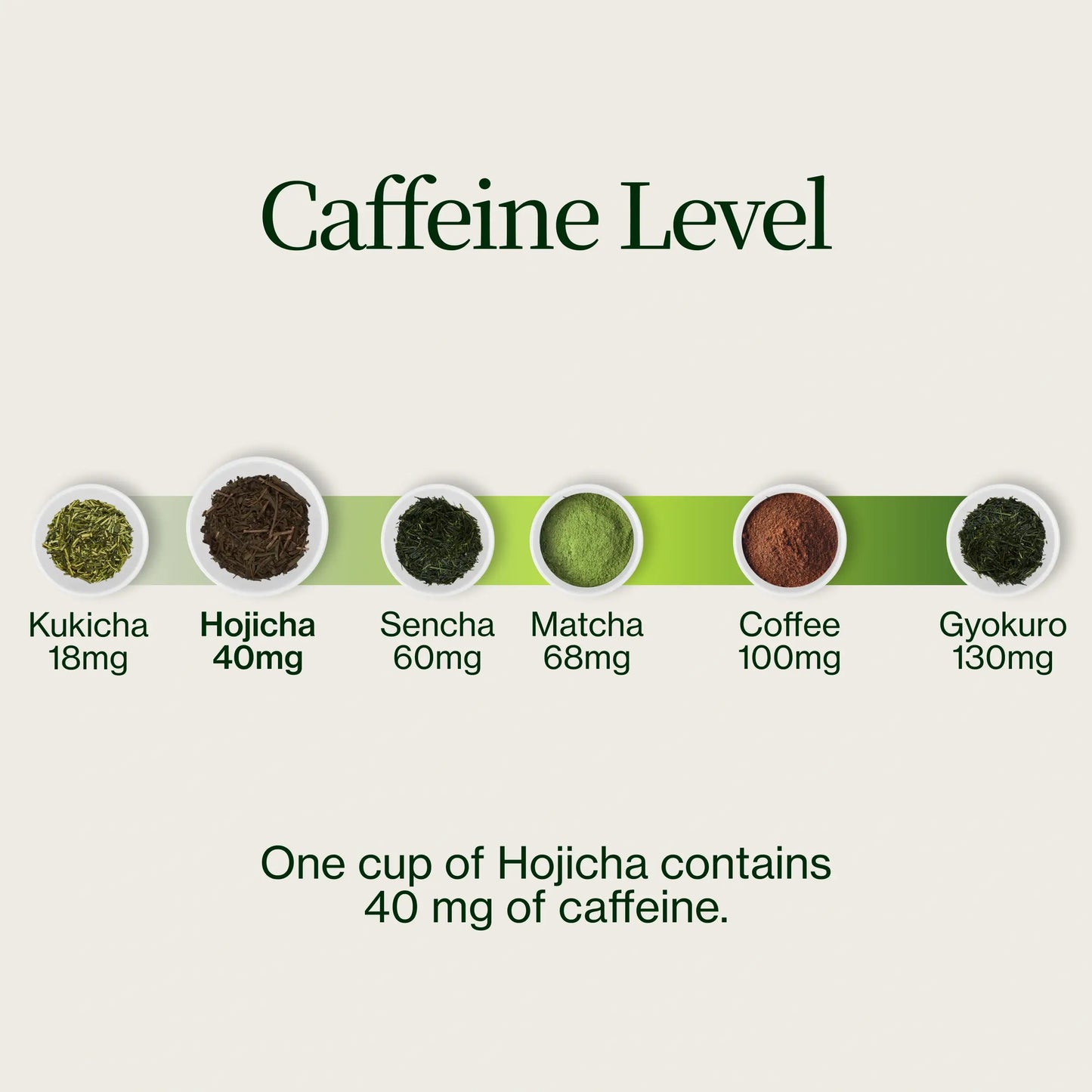
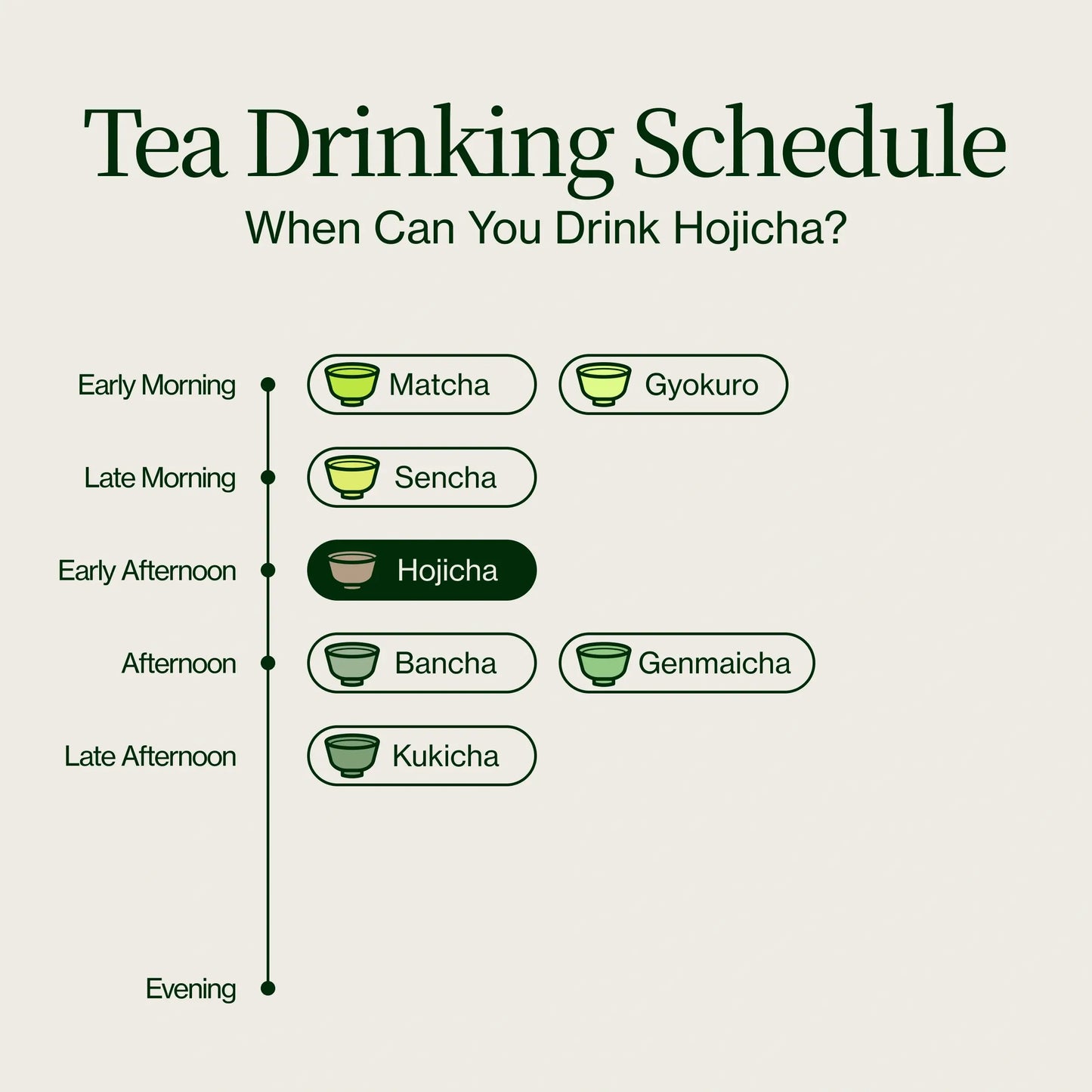
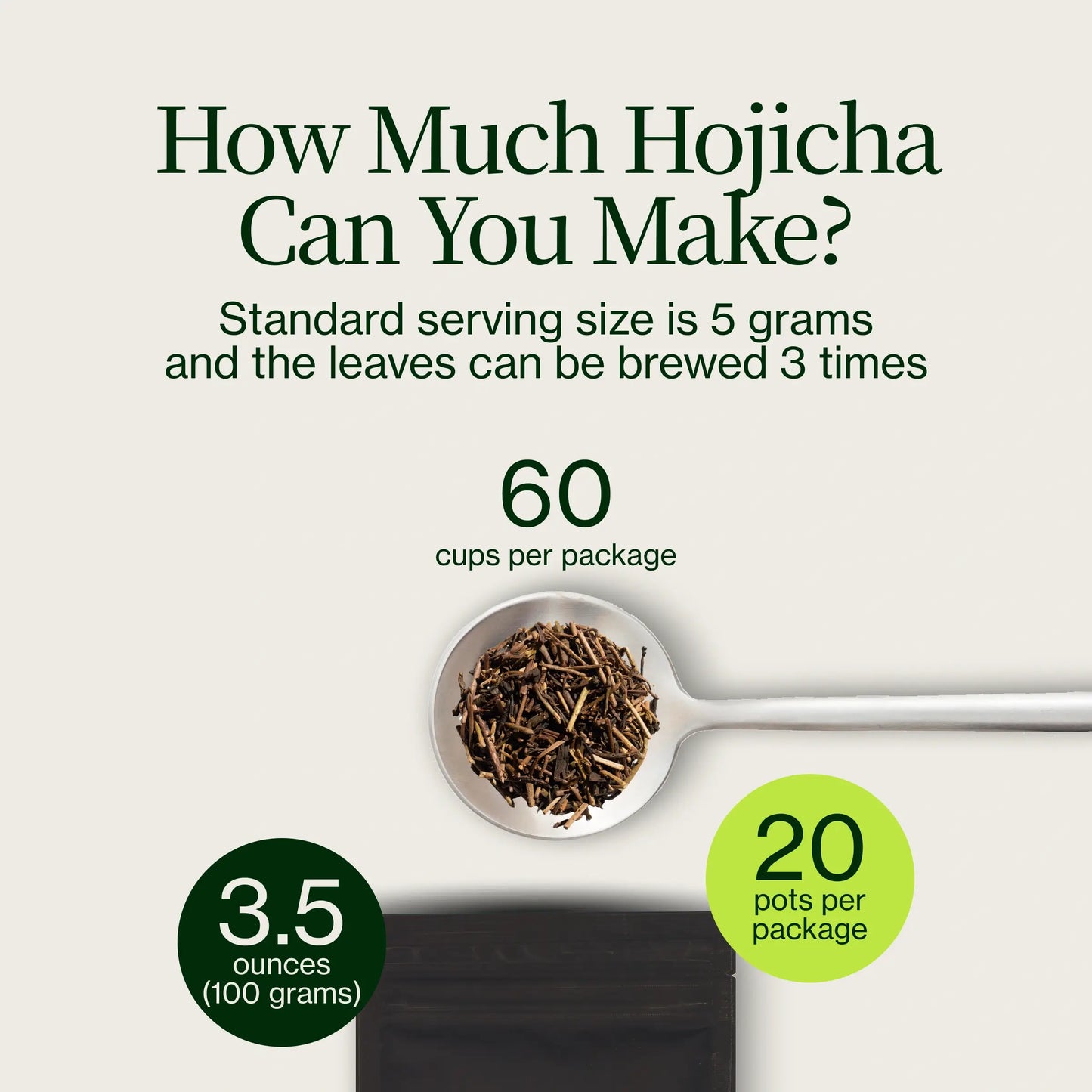




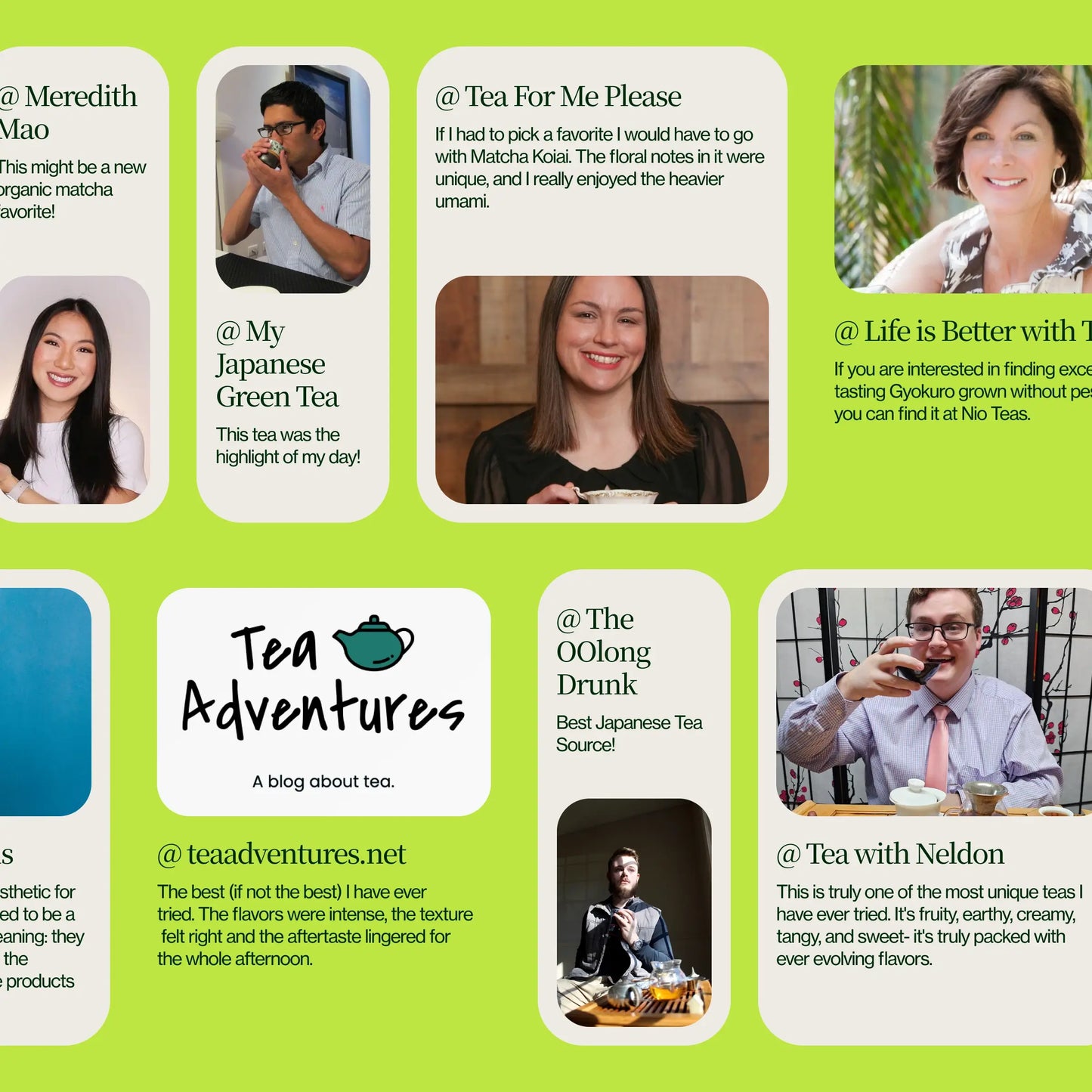
Hojicha powder is a great way to bring that delicious roasted tea flavor into all sorts of creations like hojicha lattes, hojicha desserts and hojicha snacks. Hojicha powder is similar to matcha, but it is ground from leaves that are roasted, giving it much warmer flavors of coffee, caramel and chocolate.
Taste
Observing the Appearance
The color of this hojicha powder is dark brown and it is finely ground into a smooth powder.
Assessing the Aroma
The aroma coming off the hojicha powder as it is mixed into water is an intense roasted scent, with notes of charred wood.
Tasting the Tea
The latte leads with a light savory flavor that soon transforms into a strong roasted profile that complements the milk nicely. Eventually, the roasted flavor profiles give space for a sweet, chocolaty finish.
Evaluating the sensation on the palate
The hojicha powder has some strong flavor profiles that work well when smoothed out by the milk. The structure of the hojicha latte is similar to that of a matcha latte, with the smooth, umami flavors of the milk dominating in the beginning and then the roasted and chocolaty flavors of the hojicha coming through towards the end.
ratio: 2 grams of powder and ½ cup of oatmilk
If you still have questions about what is hojicha powder, you can read this blog article that explains all about it!
This organic hojicha powder is 100% Organically grown
At Nio, we value our close collaborations with tea farmers who grow green tea using techniques that are free of pesticides and chemicals. We firmly believe that these methods not only improve the taste and excellence of the tea but also promote the general health and long-term viability of the tea fields.
Our personal encounters touring tea fields in Japan have demonstrated to us that farms that steer clear of pesticides and chemicals foster a robust and flourishing ecosystem, benefiting not only the tea plants but also other flora and fauna that call the area home.
Nio Teas Unique Organically grown sourcing process
- To find the best hojicha powder japan has to offer, we meticulously conduct taste tests on each tea variety from many different farms.
- We maintain open communication with the farmers we collaborate with to ensure their unwavering commitment to producing tea using pesticide-free and chemical-free methods.
- In-person visits to the farms are also a part of our process. We assess both the tea fields and production facilities to ascertain their quality.
- We prioritize the promotion of biodiversity around the tea fields, striving to create a thriving ecosystem that coexists harmoniously with our tea cultivation practices. It’s not enough just to have the best hojicha powder, we also want to make sure it is produced in a sustainable way.
JAS Tea
In our tea collection, you may notice the JAS label, which stands for Japanese Agriculture Standards. This certification guarantees that the teas are grown without the use of pesticides or chemicals, as verified by the Japanese government.
When partnering with larger tea farmers, we prefer them to provide us with the JAS label, which they obtain through rigorous soil sampling and testing to ensure that their teas meet the highest standards of quality and sustainability.
Additionally, we collaborate with smaller tea farmers who may not have obtained formal certification yet, but practice pesticide-free methods. We accept the "pesticide-free" label from these farmers as it aligns with our commitment to quality and sustainability while also promoting opportunities for small farmers to thrive in the industry.
How to prepare the tea
Step 1: Measure out 2 grams or 1 teaspoon of the hojicha latte powder and sift it into the bottom of a bowl, ensuring there are no clumps.
Step 2: Add 1 tablespoon of warm water to the hojicha powder, just enough to create a smooth paste. Mix it well until the hojicha tea powder is fully dissolved.
Step 3: Pour in ½ cup of your preferred milk, such as oat milk, soy milk, or any other milk of your choice. If you're making an iced hojicha latte, you can use refrigerated milk, while for a warm hojicha latte, we recommend heating the milk in a pan.
Step 4: Use a whisk to combine the hojicha paste into the milk, stirring until you achieve a smooth and frothy consistency. If you prefer your hojicha latte to be sweeter, this is the time to add your preferred sweeteners and stir well.
Step 5: Your hojicha latte is now ready to be enjoyed! If you're making an iced hojicha latte, you can add ice cubes or hojicha ice cubes made from hojicha latte powder to keep it chilled. Sip and savor the rich and creamy flavors of your homemade hojicha latte. Enjoy!
If you want to learn more about how to make the perfect hojicha latte, you can read all about it in our blog.
Location of production and farmer
Who makes the hojicha powder?
This hojicha powder is produced by a talented group of farmers at Oishi Chaen in Yame. The Oishi tea factory was first established by the Oishi family as far back as 1940, and it has still remained in the family, with the company currently being led by Mr. Goji Oishi.
Oishi Chaen seeks to continue the proud tradition of excellent quality Yame teas and the hojicha latte powder is no exception. After tasting many samples submitted from farmers all around Japan, the one submitted to us by Mr. Oishi is the best hojicha powder we have tried to date.
Where is the hojicha powder produced?
The hojicha tea powder is grown and produced in Yame, one of the most famous regions for Japanese tea production. Yame is a small region in the Fukuoka prefecture of Southern Japan. It is mostly well known for producing some of the best gyokuro in the country, but as we have seen from the hojicha green tea powder from Oishi, the region is also capable of producing some of the best hojicha powder as well.
Southern Japan benefits from a mild, subtropical climate, plentiful rainfall and rich volcanic soils which makes it the perfect place to grow delicious Japanese green teas.
Cultivar and tea plant variety
This instant matcha latte is made from the Yabukita cultivar, by far the most common variety of tea plant for making matcha latte powder.
Yabukita
The yabukita cultivar has gained immense popularity due to its bold flavor profiles that many green tea drinkers appreciate. When it comes to making a hojicha latte, the yabukita is a good cultivar to use. Its robust flavors are enhanced by the addition of milk, resulting in a creamy and sweet beverage that retains a pronounced hojicha taste.
FAQ
Shipping: When you buy hojicha powder, you get free shipping wherever you are in the world. Estimated delivery time is typically 5-7 days for customers in the U.S. and E.U., and up to 10 days for other regions. For expedited shipping, we offer additional options for a nominal fee.
Order Issues: In case of any issues with your order of the hojicha tea powder, our customer service team is readily available to assist you. You can contact us via email at info@nioteas.com or send us a direct message on Instagram at @nio_japanese_green_tea for quick questions.
Payments: To offer convenience, we accept major credit cards, PayPal, and Apple Pay as payment methods when you buy hojicha powder. If you prefer to pay via bank transfer, simply select this option at checkout and we will provide you with the necessary information. Your order will be dispatched promptly upon receipt of payment.
Returns and Refunds: Our top priority is ensuring that you have a positive tea experience with the hojicha green tea powder. If, for any reason, you are dissatisfied with the tea you receive, please let us know, and we will be happy to replace it to ensure your complete satisfaction.
